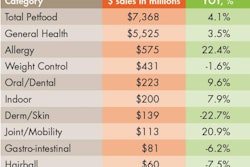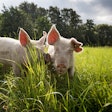High-protein diets help prevent loss of lean mass in calorie-restricted cats. However, it is not entirely known whether these diets also induce changes of energy expenditure during periods of calorie restriction. In this study, sixteen overweight cats were fed either a high-protein or a moderate-protein diet at 70% of their maintenance energy intakes for eight weeks, and energy expenditure, energy intake, body weight and composition, and serum metabolites and hormones were measured.
While both groups of cats lost weight at a similar rate, only cats eating the high-protein diet maintained lean mass during weight loss. Indirect respiration calorimetry measurements revealed that both total and resting energy expenditure significantly decreased during weight loss for both treatment groups. However, only cats eating the moderate-protein diet exhibited significant decreases of total and resting energy expenditures after energy expenditure was normalized for body weight or lean mass.
Results from this study suggest that in addition to sparing the loss of lean mass, feeding high-protein diets to overweight cats in restricted amounts may be beneficial for preventing or minimizing decreases of mass-adjusted energy expenditure during weight loss.
Source: X des Courtis et al., 2014. Influence of dietary protein level on body composition and energy expenditure in calorically restricted overweight cats. JAPAN online, July 2014. doi: 10.1111/jpn.12239.
















